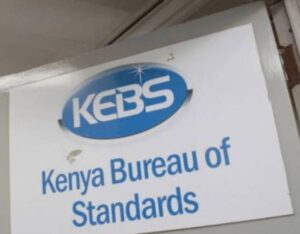
Competition Authority of Kenya Boss David Kemei. Photo | courtesy.
The Competition Authority of Kenya (CAK) has only managed to collect Sh177.5 million out of the Sh1.43 billion in penalties it has issued since 2021, according to new disclosures.
This means just 12.4 percent of the fines have been paid, with the remaining Sh1.25 billion tied up in lengthy court appeals at the Competition Tribunal.
Among the most significant contested fines is the Sh1.1 billion penalty imposed on retail chain Carrefour in December 2023 for abuse of buyer power. The supermarket is currently challenging the decision in court.
The authority is also facing pushback from leading steel manufacturers, including Devki, Doshi, and Tononoka Rolling Mills, which are disputing a Sh338 million fine for alleged price-fixing.
The low collection rate has raised questions about the effectiveness of CAK’s enforcement powers and whether such penalties truly act as a deterrent in the market.
CAK Director General David Kemei said the authority views penalties as a last resort and prefers to encourage voluntary compliance.
ALSO READ: BNN Debuts in Nairobi with Grand Event to Strengthen SME-Corporate Partnerships
“We are not in the business of punishing companies for the sake of it. Fines are a tool to drive compliance and protect consumers when other remedies fail,” he said.
Under current law, CAK has the power to impose fines of up to 10 percent of a company’s gross annual turnover. However, that provision has never been fully enforced.
While the Treasury is legally entitled to collect fines once rulings are upheld, delays caused by litigation have significantly slowed the process. Analysts warn that the current situation may send the wrong message that companies can indefinitely stall accountability through legal challenges.
The stalled funds come at a time when CAK is rolling out its 2023–2027 strategic plan focused on deepening consumer protection and expanding advocacy to ensure fair market practices across sectors.




